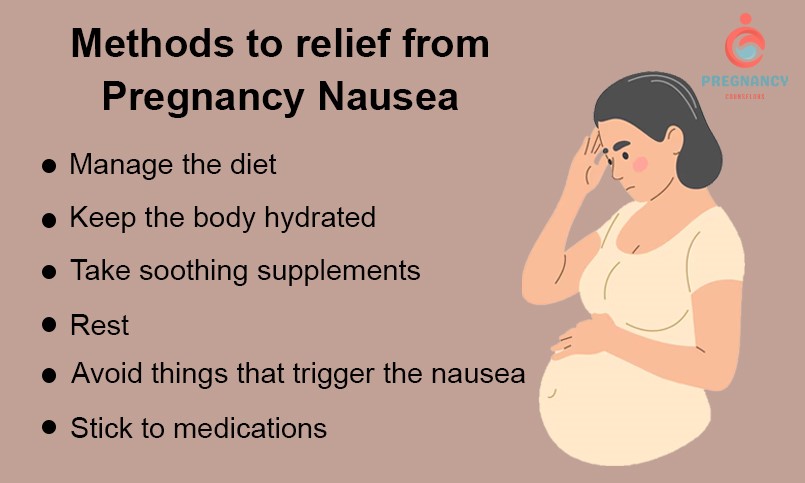Pregnancy is a wonderful journey, but it comes with a lot of symptoms, challenges, hormonal changes, and problems. Among all the challenges, pregnancy nausea and vomiting are the most common symptoms. It is also described as morning sickness. It is considered the most common symptom or an early sign of pregnancy and happens with more than half of the percentage of pregnant women. Morning sickness can happen at any time of day, regardless of its name.
Pregnancy nausea can begin in the first trimester for about 6 to 12 weeks; in some cases it is extended to 20 weeks. However, the extreme condition of nausea and vomiting is understood as hyperemesis gravidarum, which needs immediate hospitalization or medical assistance.
Causes of Pregnancy Nausea
As an assumption, the hormones of the body of an expecting mother changing during pregnancy can be the major cause of nausea.
- Hormonal Changes: A sudden increase in the hormone level, especially the estrogen level, and human chorionic gonadotropin (HCG), cause nausea.
- Sensitivity to smells: due to a rise in sensitivity to smell, many pregnant women experience nausea and vomiting.
- Gastrointestinal issue: slow digestion in pregnancy is normal, although it comes with discomfort, loss of appetite, vomiting, and nausea.
- Blood Sugar Levels: the sudden fluctuation in the blood sugar level, especially the low blood sugar level, can lead to nausea and vomiting.
- Fatigue: pregnancy nausea can increase or worsen due to mental and physical exhaustion.
- Stress: the stress about the pregnancy and managing the arrival of a new member can result in tiredness and bad digestion, which eventually result in pregnancy nausea and vomiting.
- Diet: Immediate change in the diet during the pregnancy phase can lead to many issues, such as digestion challenges, vomiting, bloating, nausea, and many more.
Symptoms of Pregnancy Nausea
The pregnancy nausea, despite being the most common pregnancy symptom, its duration, and intensity vary depending on the individual pregnancy and includes symptoms such as
- Nausea with vomiting or without vomiting.
- Increase sensitivity to the specific foods and smells.
- Weakness and low energy due to loss of appetite.
- Loss in weight
- Salivation: Excessive excretion of saliva is a common symptom of pregnancy, and the bitter taste due to salivation generally results in nausea during pregnancy.
Methods to relief from Pregnancy Nausea
To cope with the pregnancy nausea and vomiting issue, there are main precautions pregnant women can take.
- Manage the diet: Maintain the diet plan and the quantity of meals taken. For example, eat small meals frequently to manage the blood sugar level and balance the appetite with the addition of bland food.
- Keep the body hydrated: drink plenty of liquid, such as juices, herbal tea, water, electrolytes, and watery fruits to manage the water level of the body.
- Take soothing supplements: supplements or food that will help in managing pregnancy nausea symptoms or give relief, such as ginger, peppermint, chamomile, vitamin B6, and more.
- Rest: make sure that the body is relaxed and having a proper rest and sleep to overcome the nausea and vomiting problem. To relax the body and mind, one can try deep breathing exercises and yoga.
- Avoid things that trigger nausea: it is recommended to avoid strong smells, oily foods, and high-spice foods as they increase the chances of pregnancy nausea due to low tolerance and hormonal changes.
- Stick to medications: avoid taking any extra over-the-counter medicines or supplements; consult the healthcare advisor or the doctor in serious cases.

Need to Rush
Remember, any symptom in pregnancy that is hard to manage or worsens with duration needs to be diagnosed or checked by the healthcare provider because they will be able to recommend safe medications or treatments to help manage symptoms. Therefore, it is recommended to rush to the hospital if the pregnancy nausea gets worse and you experience the following symptoms:
- Extreme vomiting
- Rapid loss of weight.
- Extreme dehydration.
- Problem while urinating or dark urine color.
- Hyperemesis gravidarum: a condition when the nausea and vomiting worsen and are difficult to manage.
FAQS
How to deal with pregnancy nausea?
To deal with pregnancy nausea, choose the right food diet and manage the quantity of food and water taken. Additionally, doing relaxing exercises and having proper rest can lower the effect of nausea.
When does pregnancy nausea stop?
Nausea generally starts in the first trimester for nearly 6 to 12 weeks, but in some cases, the nausea extends to 20 weeks or throughout the pregnancy.
What does pregnancy nausea feel like?
The symptoms of pregnancy nausea include fatigue, morning sickness, stress, restlessness, discomfort and feeling like vomiting.

